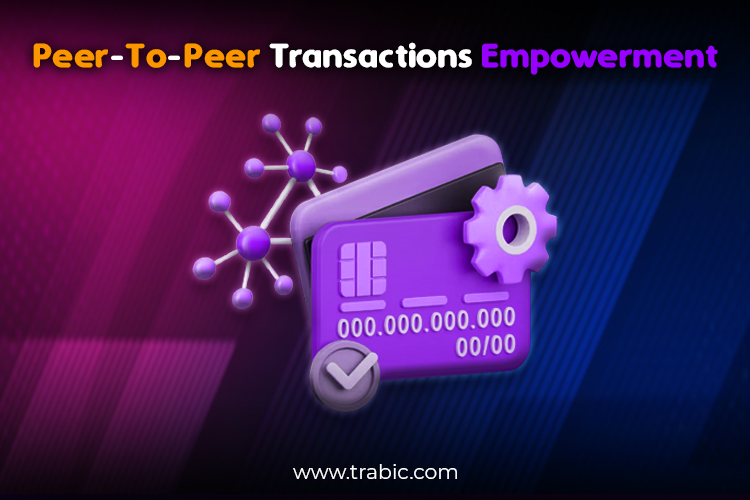In an era defined by innovation and digital transformation, the emergence of cryptocurrencies has heralded a paradigm shift in the financial landscape, shattering conventional barriers with audacious flair. These digital currencies, built upon the bedrock of blockchain technology, have ignited a revolutionary fervor that transcends geographical boundaries and traditional financial systems. With their decentralized nature and cryptographic security, cryptocurrencies, including Bitcoin and Ethereum, have captured the collective imagination, emancipating individuals from centralized control and empowering them with newfound financial sovereignty.
As these disruptive forces continue to gain momentum, they are redefining the very essence of money, sparking a seismic revolution that promises to democratize finance and reshape the world as we know it. Through the fusion of cutting-edge technology and visionary principles, cryptocurrencies are transcending limitations, amplifying inclusivity, and carving a bold path toward a decentralized financial future.
In an increasingly digital world, cryptocurrencies have emerged as a disruptive force, revolutionizing the financial landscape as we know it. These digital currencies are transforming traditional systems and breaking barriers that have long-constrained economic transactions. With their decentralized nature, transparency, and security, cryptocurrencies are paving the way for a more inclusive, efficient, and accessible financial future.
The rise of cryptocurrencies has given birth to a new era of financial empowerment, where people can transact instantly with one another without the need for intermediaries like banks or governments. Once limited by geographical boundaries and bureaucratic hurdles, peer-to-peer transactions are made seamless and instant through the power of blockchain technology. This technology allows secure and transparent transactions, with every transaction recorded on a public ledger resistant to manipulation or tampering.
As a result, users have more control over their funds and can enjoy lower transaction costs and faster settlements. Beyond empowering individuals, cryptocurrencies are also democratizing access to financial services. Traditional banking systems have excluded large population segments from essential financial services in many parts of the world. Anyone with a wallet and the internet can experience the global economy. This level of financial inclusion opens up opportunities for entrepreneurship, savings, and investment for those previously underserved by traditional financial institutions.
Moreover, cryptocurrencies are unlocking the potential of decentralized finance (DeFi), a rapidly growing sector that aims to disrupt traditional financial intermediaries. DeFi platforms provide innovative lending, borrowing, trading, and more solutions without the need for traditional banks or financial institutions. This peer-to-peer financial ecosystem empowers individuals to take control of their financial decisions, removes unnecessary fees, and reduces dependence on centralized authorities.
As the world continues to adapt to the digital revolution, understanding the transformative power of cryptocurrencies is becoming increasingly crucial. Whether you are an individual seeking financial freedom, a business owner exploring new opportunities, or a policymaker shaping the future of finance, recognizing the impact of cryptocurrencies is paramount.
From empowering peer-to-peer transactions and promoting financial inclusion to facilitating transparent and secure transactions and unlocking the potential of DeFi, we will explore the countless ways cryptocurrencies are revolutionizing finance. Prepare to embark on an exciting journey into the realm of cryptocurrencies, where innovation and disruption combine to reshape the future of finance. Get ready to discover the limitless possibilities and the untapped potential that awaits in this groundbreaking era of cryptocurrencies revolutionizing finance.
Empowering Peer-to-Peer Transactions: Redefining Financial Independence
In the digital finance, a groundbreaking revolution is underway: “Empowering Peer-to-Peer Transactions: Redefining Financial Independence.” This paradigm-shifting concept encompasses a profound transformation in how individuals engage in financial interactions, transcending the traditional boundaries imposed by intermediaries. With an audacious combination of technological innovation and the spirit of empowerment, this movement champions the liberation of individuals from the clutches of centralized institutions.
Harnessing the power of blockchain technology and decentralized networks encourages individuals to take control of their financial destiny, fostering a newfound era of autonomy, transparency, and trust. Through this redefinition of financial independence, the empowerment of the masses flourishes, opening doors to previously unimaginable opportunities and paving the way for a truly inclusive and equitable financial landscape.

Cryptocurrencies have ushered in a new era of financial empowerment by revolutionizing how we conduct transactions. Traditionally, financial transactions require intermediaries such as banks to promote the exchange of accounts between parties. However, cryptocurrencies have disrupted this model by enabling direct peer-to-peer transfers, eliminating the need for intermediaries, and revolutionizing the financial landscape. In traditional banking systems, transactions often involve multiple parties, complex processes, and lengthy processing times. Not only does this slow down the transaction process, but it also introduces additional costs in fees and commissions.
Moreover, the reliance on intermediaries means that individuals have limited control over their funds, as their transactions are subject to the policies and restrictions of the financial institution involved. Cryptocurrencies, on the other hand, provide a decentralized and efficient alternative. By utilizing blockchain technology, cryptocurrencies facilitate secure and near-instantaneous transfers between individuals, irrespective of geographical boundaries.
This removes the need for intermediaries, streamlining the process and significantly reducing transaction costs. Furthermore, cryptocurrencies empower individuals to have complete control over their funds. With a digital wallet and key to the internet, anyone can send or receive cryptocurrencies directly without relying on a third party. This financial autonomy allows individuals to manage their assets, making transactions on their terms and timelines.
The empowerment of peer-to-peer transactions through cryptocurrencies has far-reaching implications. It not only saves time and money but also fosters greater financial inclusion. In regions with limited access to traditional banking services, cryptocurrencies offer an alternative avenue for individuals to participate in the global economy. All required is an internet connection, a digital wallet, and the knowledge to engage with cryptocurrencies.
Additionally, peer-to-peer transactions through cryptocurrencies enable individuals to bypass restrictions and limitations imposed by traditional financial systems. This is particularly beneficial in areas with strict capital controls or unstable economies, where cryptocurrencies can serve as a secure and reliable means of preserving and transferring wealth. Cryptocurrencies have transformed how we conduct financial transactions by empowering direct peer-to-peer transfers.
Cryptocurrencies eliminate intermediaries and provide a more efficient, cost-effective, and transparent method of exchanging value. The ability to conduct transactions securely and quickly while maintaining complete control over funds revolutionizes the concept of financial independence. As cryptocurrencies continue to gain adoption and evolve, the power of empowering peer-to-peer transactions will reshape the financial landscape and redefine how we interact with money.
Promoting Financial Inclusion: Cryptocurrencies Bridging the Gap
Financial inclusion, the ability for individuals to access and utilize financial services, is crucial to economic empowerment and growth. However, traditional banking systems often exclude large population segments from essential financial services, particularly in developing countries. Cryptocurrencies have emerged as a powerful tool in promoting financial inclusion by offering a new pathway for the unbanked and underbanked to participate in the global economy. In many parts of the world, individuals face significant barriers when accessing traditional financial services.
Limited physical infrastructure, high account maintenance fees, and stringent identification requirements are just a few hurdles hindering financial inclusion. As a result, millions still need to be included in the formal financial system, depriving them of opportunities for savings, investments, and economic stability. Cryptocurrencies offer a solution to these challenges by leveraging technology and the internet.
An internet connection and a digital wallet are all required to participate in the cryptocurrency ecosystem. This accessibility transcends physical boundaries and bureaucratic limitations, providing a pathway for individuals previously excluded from traditional financial systems to manage their finances and engage in economic activities. Individuals can send and receive funds globally without relying on traditional intermediaries by utilizing cryptocurrencies. This opens up opportunities for cross-border transactions, remittances, and access to financial services that were once out of reach.

For individuals in remote areas or regions with limited banking infrastructure, cryptocurrencies provide a lifeline for participating in the global economy. Furthermore, cryptocurrencies have the potential to empower entrepreneurs and small businesses. Access to capital is often a significant hurdle for these entities, particularly in areas with limited access to formal banking systems.
Cryptocurrencies offer a means for crowdfunding, access to micro-loans, and peer-to-peer lending platforms, enabling individuals and businesses to secure funding and grow their ventures. In addition to accessibility, cryptocurrencies also offer a higher level of financial privacy and security. In regions where political instability or economic uncertainty prevails, the ability to protect and preserve wealth becomes crucial. Cryptocurrencies provide a decentralized and secure method of storing and transferring value, giving individuals control over their assets and protecting them from inflation, currency devaluation, or confiscation.
Cryptocurrencies promote financial inclusion by bridging the gap between traditional financial systems and underserved populations. By providing an accessible and secure platform for individuals to manage their finances and engage in economic activities, cryptocurrencies are empowering the unbanked and underbanked to participate in the global economy. As the adoption of cryptocurrencies persists, the potential for financial inclusion to uplift individuals, communities, and entire economies becomes increasingly evident.
Facilitating Transparent and Secure Transactions: The Power of Cryptocurrencies
Transparency and security are crucial pillars of any financial system, and cryptocurrencies have emerged as a game-changer in these areas. Operating on decentralized blockchain networks, cryptocurrencies offer unparalleled transparency and security in financial transactions, revolutionizing how we conduct and perceive digital exchanges.
One of the key features of cryptocurrencies is their transparency. Each transaction is registered on a public ledger called the blockchain. This decentralized and immutable ledger ensures that every transaction is transparent and visible to all participants in the network. This level of transparency eliminates the need for trust in intermediaries, such as banks or financial institutions, as the integrity of the transaction data can be independently verified by anyone.
The transparency of blockchain technology reduces the risk of fraud, corruption, and manipulation, fostering trust in financial systems. Furthermore, the use of advanced cryptographic techniques ensures the security of transactions in the cryptocurrency realm. Cryptocurrencies utilize cryptographic algorithms to encrypt transaction data, making it complicated for unauthorized individuals to access or manipulate the information. This cryptographic security provides a robust framework for safeguarding users’ funds and against unauthorized activities.

In addition to securing individual transactions, cryptocurrencies employ digital signatures and private-public key pairs to authenticate and authorize transactions. Each user has a unique digital signature, generated using their private key, which verifies their identity and ensures that the transaction is legitimate. This cryptographic security mechanism prevents unauthorized access to funds and protects against fraudulent activities. Moreover, the decentralized nature of blockchain networks adds an extra layer of security. Traditional financial systems are susceptible to centralized points of failure, making them vulnerable to hacking, data breaches, and manipulation.
However, in a decentralized blockchain network, the transaction information is distributed across an extensive network of computers (nodes), making it highly resistant to hacking attempts. The decentralized nature of cryptocurrencies enhances the security of transactions by eliminating single points of failure and ensuring the system’s integrity. Cryptocurrencies are at the forefront of facilitating transparent and secure transactions.
Using decentralized blockchain networks ensures unparalleled transparency by recording every transaction on a public ledger, instilling trust in financial systems. Additionally, advanced cryptographic techniques protect users’ funds and data, preventing unauthorized access and ensuring secure transactions. As cryptocurrencies evolve and gain mainstream adoption, these digital assets’ transparent and secure nature will continue redefining how we perceive and conduct financial transactions.
Unlocking the Potential of Decentralized Finance (DeFi): Redefining the Financial Landscape
Cryptocurrencies have revolutionized financial transactions and unlocked the potential of decentralized finance (DeFi), a rapidly growing sector that aims to disrupt traditional financial intermediaries. DeFi applications, built on blockchain platforms, are reshaping how financial services are provided by offering a decentralized and peer-to-peer ecosystem for lending, borrowing, and trading digital assets.
Traditionally, financial services such as lending and borrowing required intermediaries such as banks or other centralized institutions. These intermediaries added layers of bureaucracy and imposed fees and limitations on users. DeFi applications eliminate the need for intermediaries, allowing users to directly engage in financial activities with other participants on the blockchain network.
One of the critical advantages of DeFi is its accessibility. Anyone with an internet connection and a consistent digital wallet can participate in DeFi platforms. This inclusivity empowers individuals who may have been excluded from traditional financial systems due to geographical, socioeconomic, or identity-related barriers.
DeFi enables financial activities on a global scale, breaking down borders and providing equal opportunities for individuals to access financial services. Moreover, DeFi offers greater transparency compared to traditional financial systems. All transactions and operations on DeFi platforms are registered on the blockchain, delivering a transparent and immutable ledger. This transparency builds trust and allows users to verify the system’s integrity independently.
Users can track their transactions, monitor interest rates, and guarantee the accurate execution of smart contracts without relying on third-party audits. In addition to accessibility and transparency, DeFi also offers cost-effectiveness. Traditional financial systems often have high transaction fees, loan origination fees, and other hidden costs. DeFi applications leverage blockchain technology to reduce or eliminate these fees, making financial services more affordable and accessible to a broader range of individuals.
Furthermore, DeFi provides individuals with greater control over their financial decisions. Users can create, manage, and control their digital assets directly through smart contracts and decentralized applications. This level of control empowers individuals to customize their financial strategies, mitigate risks, and optimize their investment decisions according to their preferences and goals.
DeFi represents a paradigm shift in the financial industry by unlocking the potential of decentralized and peer-to-peer financial services. Through blockchain technology, DeFi applications eliminate the need for intermediaries, provide transparency, reduce costs, and give individuals greater control over their financial decisions. As the DeFi ecosystem continues to evolve, it has the prospect of reshaping the financial landscape, democratizing access to financial services, and fostering greater financial empowerment for individuals worldwide.
Conclusion
In conclusion, the impact of cryptocurrencies on the financial world is undeniable. Cryptocurrencies are breaking barriers and reshaping the traditional financial landscape through revolutionary capabilities. We have explored several critical aspects of this transformation, including empowering peer-to-peer transactions, promoting financial inclusion, facilitating transparent and secure transactions, and unlocking the potential of decentralized finance (DeFi).
Cryptocurrencies have empowered individuals to engage in direct peer-to-peer transactions, eradicating the necessity for intermediaries and streamlining the process. This saves time and money and grants individuals complete control over their funds, enabling them to transact on their terms and timeline. Financial inclusion has received a significant boost from cryptocurrencies. With the accessibility of digital wallets and internet connectivity, individuals previously excluded from traditional financial systems can now participate in the global economy.
Cryptocurrencies offer savings, investments, and entrepreneurship opportunities, driving economic growth and empowerment. The transparent and secure nature of cryptocurrencies, enabled by decentralized blockchain technology, instills trust in financial transactions. Every transaction recorded on the blockchain is transparent and immutable, reducing the risk of fraud and corruption.
Advanced cryptographic techniques ensure the security of transactions, protecting users’ funds from unauthorized access and providing robust frameworks for safeguarding digital assets. The emergence of decentralized finance (DeFi) has further reshaped the financial landscape. DeFi applications leverage blockchain platforms to offer financial services in a peer-to-peer and decentralized manner.
By eliminating intermediaries, reducing costs, and providing greater control to users, DeFi is democratizing access to financial services and redefining how individuals engage with financial activities. As we delve into the realm of cryptocurrencies, it becomes evident that we are witnessing a paradigm shift in how we perceive and interact with money. The transformative power of cryptocurrencies is disrupting traditional financial systems, empowering individuals, promoting financial inclusion, and fostering innovation in the financial sector.
As this revolution continues to unfold, individuals, businesses, and policymakers need to understand and embrace the potential of cryptocurrencies. By staying informed and adapting to the changing landscape, we can fully harness the benefits of cryptocurrencies and contribute to a future where financial transactions are more efficient, accessible, secure, and inclusive. The journey toward a cryptocurrency-driven financial world has only begun, and endless possibilities exist.
